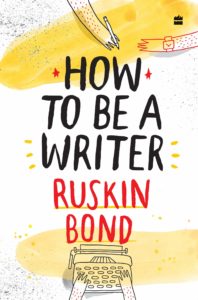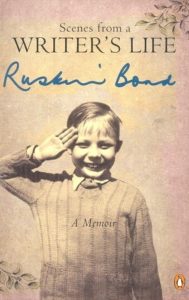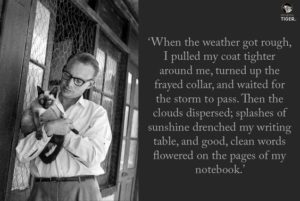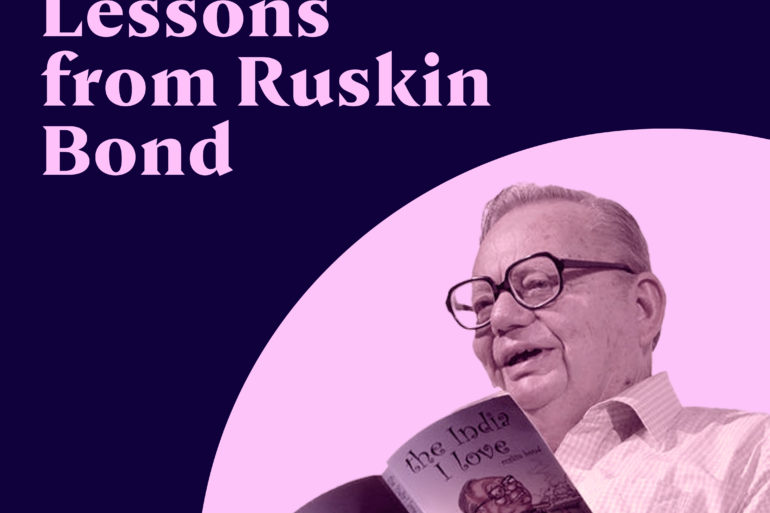Ruskin Bond On Writing: Lessons to learn from the Maverick Author
If you’re a young and aspiring writer, there are few people better to learn from than Ruskin Bond. The maverick author has been writing for over six decades now, and his work is marked by simplicity and clarity that can be hard to find in today’s literary world. In this blog post, we’ll explore some of the lessons that Bond has to offer about the writing process.
- Why you should read Ruskin Bond?
- The Novels and Short stories of Ruskin Bond
- Becoming a Writer
- Purpose of Writing
- Ruskin Bond’s Writing Theory
- Importance of Notes
- The Art of Discipline
- Creating your routine
- Finding your style
- Key to Creating your characters
- Overcoming the roadblocks
Why you should read Ruskin Bond?
Ruskin Bond is a maverick among Indian English writers. His works are simple yet effective and his narratives always carry a strong sense of place. Ruskin Bond has been writing for over seven decades and has published over 500 books, establishing himself as one of the most prolific writers in India.
While he is primarily known for his children’s stories, Ruskin Bond’s oeuvre also includes novels, essays, and poetry. His work is widely anthologized and he has won several prestigious awards, including the Sahitya Akademi Award and the Padma Shri.
Ruskin Bond’s work is relevant to young writers for several reasons. First and foremost, he is a master storyteller who knows how to capture the attention of his readers. His stories are heavily influenced by his own experiences, which makes them all the more relatable.

Furthermore, Ruskin Bond’s writing style is straightforward to follow. Aspiring writers can learn a lot from studying his work, particularly in terms of how to construct a compelling narrative. Finally, Ruskin Bond’s love for nature shines through in his work, and this is something that resonates with many young writers.
In conclusion, Ruskin Bond is an important figure in Indian literature and aspiring writers would do well to study his work. By reading Ruskin Bond’s stories, young writers can learn how to craft their narratives and build a legacy of their own.
The Novels and Short stories of Ruskin Bond
Ruskin Bond’s oeuvre includes short stories, novels, poems, and children’s books, all of which are suffused with a love of nature and an affinity for the simple things in life. Ruskin Bond was born in Kasauli, Himachal Pradesh, in 1934, and spent his childhood in Shimla, Mussoorie, and Dehradun.
These early years among the hills and forests of India kindled in him a lifelong love of the natural world. This love is evident in all of his writing, whether it be the poignant tale of a lonely old man befriending a fox (The Fox and the Chikor), or the delightful story of two children who discover a mischievous monkey living in their house (Monkey Trouble).
His work is a rich resource for aspiring writers who wish to understand the art of storytelling. Ruskin Bond’s novels and short stories are replete with examples of how to effectively use simplicity and versatility to create an exciting story.
For instance, in his novel “The Room on the Roof”, Ruskin uses the simple story of a young boy’s search for adventure to exploring themes of Friendship, First Love, and coming of age. Similarly, in his short story “The Tiger in the Tunnel”, Ruskin again uses a simple story to explore more complex themes such as fear, hope, and courage. Aspiring writers can learn much from Ruskin’s work about how to use simplicity and versatility to create an effective and engaging story.
Becoming a Writer
How does one become a writer? Ruskin Bond has some answers. He believes that there are three requirements for becoming a writer. Firstly, “One must have something to say.” That is, a writer must have something of value to impart to their readers.
Secondly, a writer must have “the capacity to say it well.” In other words, they must be skilled in the art of communication. Lastly, a writer must have “the patience to say it better.” They must be willing to revise and improve their work until it is the best it can be.

However, even if a person meets all of these requirements, Bond says that “nothing can be guaranteed.” Being a successful writer requires talent, hard work, and most importantly, luck.
But for those who are determined to become authors, Bond’s advice is clear: “Keep writing.” Because in the end, only those who persevere will achieve their dreams.
Purpose of Writing
Ruskin Bond has been writing for over five decades and his stories have enthralled readers of all ages. In a recent interview, he was asked about the purpose of writing and why he continues to write even after all these years. “For me, the purpose of writing is twofold,” he replied.
Firstly, write to entertain yourself. It’s a form of personal relaxation and enjoyment. But secondly-and this is perhaps more important- try to write and understand life and the world around you. He went on to explain that aspiring writers often ask him how they can improve their craft. His advice is always the same: “Write from the heart. Write about what you know and what you care about.

And don’t worry too much about grammar or style. If you have something worthwhile to say, then people will listen.” With these wise words, Ruskin Bond reminds us that the best writing comes from a place of passion and authenticity.
Ruskin Bond’s Writing Theory
Writing is an incredibly complex and nuanced art form, and there is no one “right” way to do it. However, aspiring writers can benefit from studying the theories of established authors to gain a better understanding of the craft. Ruskin Bond has developed a unique writing theory that emphasizes the importance of stories coming from a place of personal experience. According to Bond, good writing comes from a deep understanding of human emotions and the ability to communicate those emotions effectively on the page.
The three key elements of good writing
According to Bond, there are three key elements to good writing: simplicity, sincerity, and passion. Writing should be simple and clear, without unnecessary embellishments. At the same time, it should be earnest and sincere, written from the heart. And finally, good writing comes from a place of passion, deep feeling, and emotion. This theory can be applied by any aspiring writer, regardless of experience or skill level. By keeping these three elements in mind, anyone can learn to write well.
Importance of Notes
In a recent interview, Ruskin Bond was asked about the importance of notes when writing. He explained that notes are essential for any writer who wants to produce quality work. “You can’t just sit down and write without doing any research,” he said. “You have to gather your material, and make notes, and only then can you start shaping your story.”
Bond went on to say that notes also help writers to keep track of their ideas, and they can provide valuable pointers during the editing process. “I often go back to my notes when I’m revising a piece of writing,” he said.
“They remind me of what I was trying to achieve in the first place, and they help me to see where I need to make changes.”
In his book “The Art of Fiction”, Bond writes that “notes are the raw material out of which the final work is built.” He goes on to say that notes can be used to “help us clarify our thinking, prompt our memories, give us fresh ideas.” Notes can also help Bond to “see relationships between apparently disparate things.”
By taking the time to write down his thoughts and ideas, Bond can develop a richer, more complex understanding of his material. As a result, notes can be an invaluable tool for any writer looking to create truly effective and engaging work.
The Art of Discipline
To be an effective writer, one must master the art of discipline. This means being able to sit down and write even when you don’t feel like it, setting regular writing goals, and sticking to them. As Ruskin Bond says, “Discipline is the key to success in writing – or in anything else.” To develop discipline, young writers should start by setting small goals for themselves and then gradually increase the amount they write each day. It is also important to find a good time of day for writing and stick to that schedule as much as possible.

For some people, this means writing first thing in the morning, while for others it may be late at night. The most important thing is to find a time when you can focus and get into a writing routine. Once you have developed discipline in your writing, you will find that the quality of your work will improve and that you will be able to achieve your writing goals more easily.
Creating your routine
To be a good writer, one must have a writing routine that is both steady and well-defined. This is something that Ruskin Bond understands well. He has been quoted as saying, “I think the most important thing for a writer is to have a writing routine.” And it’s easy to see why he feels this way. A writing routine provides structure and discipline, two essential ingredients for any successful writer.

Of course, not all writers are the same, so not all writing routines will be identical. For example, some writers prefer to write in the morning, while others find that writing in the evening works better for them. Similarly, some writers like to write for a set number of hours each day, while others prefer to write until they reach a certain word count.
Ruskin Bond’s writing routine
In Bond’s writing routine, he typically begins his day with a cup of tea and a cigarette, followed by several hours of writing. However, he notes that this routine can vary depending on his mood and the weather. For example, on days when he’s feeling particularly creative, he might write for longer periods. Similarly, if it’s raining outside, he might spend more time indoors working on his latest story. Ultimately, Bond believes that the most important thing for writers is to find a routine that works for them and stick to it as much as possible.
The important thing is to find a writing routine that works for you and then stick to it. As Ruskin Bond says, “The only way to get any writing done is to sit down at a desk and do it.” So if you want to be a successful writer, take his advice and develop a writing routine that you can stick with. Who knows? You might just find that it makes all the difference in your writing career.
Finding your style of writing
Ruskin Bond has been writing for over six decades and is known for his simple and effective writing style. When he was asked to advise young writers on finding their writing style. Ruskin Bond said that the process of finding your writing style is “a bit like falling in love.”
It’s something that happens gradually and unexpectedly. The important thing is to be open to new experiences and to pay attention to the things that make you feel alive. For Bond, good writing comes from the heart. It’s about writing from a place of passion and authenticity.
He believes that the key to writing well is to write from your truth. This means being honest with yourself about your hopes, your fears, and your feelings. It also means writing about the things that you know best. When you write from a place of personal truth, your writing will be honest, compassionate, and powerful. Thanks for the advice, Ruskin Bond!
The Key to creating characters
In a recent interview, he was asked about his process for creating characters. Bond replied that the key is to “inhabit” your characters. What he means by this is that you need to understand their motivations, their desires, and their fears. Only then can you convincingly write about them.
This is something that Bond himself does when creating his characters. He tries to imagine what they would think and feel in any given situation. Additionally, he gives some pointers to writers who may be struggling with creating their characters. He suggests that you start by asking yourself some basic questions about your character.
What does this character want? What are they afraid of? What motivates them? Once you have answered these questions, you will have a better understanding of who your character is and what they want from life. This, in turn, will make them more believable and relatable to readers.
Overcoming the roadblocks
Ruskin Bond is a world-renowned author who has penned several books throughout his career. In a recent interview, he was asked about the biggest roadblocks he has faced while writing. Bond candidly shared that there have been times when he has struggled to find the right words to express himself. He recalls feeling frustrated and even discouraged at times. However, he did not let these emotions stop him from pursuing his passion for writing.
Instead, he used them as motivation to push himself harder. Bond says that the best way to overcome a roadblock in writing is to simply keep going. He advises writers to never give up, even when the going gets tough. With perseverance and determination, Bond believes that any writer can overcome the inevitable roadblocks that come with the territory.

We hope that you’ll find these tips helpful as you pursue your writing dreams. Remember, it’s important to be open to new experiences and to write from a place of personal truth. Additionally, don’t give up when the going gets tough – perseverance and determination are key ingredients for any successful writer. Thanks for reading!

